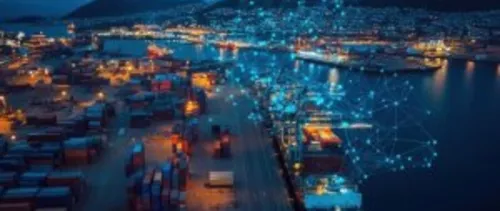
Photo credit: iStockphoto/Boy Wirat
The need for more and faster action to combat the climate change crisis is long overdue. The IPCC Sixth Assessment Report estimates that limiting warming to 1.5°C above pre-industrial levels requires global GHG emissions to be reduced by 43 percent by 2030 from 2019 levels. Still, the latest UNFCCC synthesis report estimates that GHG emissions will reduce by only 0.3 per cent below the 2019 level by 2030 - underscoring a huge ambition gap that needs to be urgently addressed.
This is also where the private sector should and can take the leading role in closely collaborating with governments and communities towards achieving the green transformation of the region. As the annual regional conference of the United Nations Economic and Social Commission for Asia and the Pacific Sustainable Development Network (ESBN), the Asia-Pacific Business Forum (APBF) is an excellent opportunity to mobilize the region's private sector for more contributions towards the green transformation of the region.
The upcoming APBF 2023 themed “An Asia-Pacific Green Deal for Business: Driving the Green Transformation” this November will provide the platform to bring climate change challenges, its repercussions across all 17 of the Sustainable Development Goals as well as innovative solutions to the public’s attention. In essence, the main challenges and opportunities for the private sector to rally action are across the five pillars of the Asia-Pacific Green Deal for Business:
- Advancing a zero carbon, affordable and resilient energy system.
- Building smart, low carbon, water-secure and climate-resilient cities, infrastructure and mobility.
- Mobilizing public and private finance for the green transformation.
- Accelerating and scaling up innovation for sustainable development.
- Changing towards a more circular economy.
Specifically, the Forum will focus on three key areas; how green finance supported by tools such as a Green Deal digital platform, green logistics and infrastructure, and green innovation and tech entrepreneurship can be leveraged to support the Asia-Pacific Green Deal for Business.
Green Finance and the Green Deal Digital Platform
Finance is at the heart of driving the green transformation. It is already well documented about difficulties of micro, small and medium-sized enterprises (MSME) to access finance, and governments and related agencies have set up various policies and mechanisms to facilitate the flow of finance to them. As companies respond to increasing demands to monitor, report and reduce their carbon footprint, it is even more important that companies, especially MSMEs understand and leverage available digital platforms on ESG and sustainability reporting to improve their access to finance. Given the landscape of available sustainability-linked financing/supply chain financing products is constantly evolving, the Green Deal and its ESBN digital platform can support the improved mobility of green capital throughout the region, particularly in enabling more corporates and MSMEs to qualify for green finance.
Green Logistics and Infrastructure
Green logistics is gaining traction as it is an important component of an organization’s supply chain. Key important players include not only the private sector in the infrastructure and logistics sector, but also those in the Least Developed Countries (LDCs), Landlocked Developing Countries (LLDCs), and Small Island Developing States (SIDS) whose understanding will be vital to participate, to build their green businesses, and accelerate actions for decarbonization and waste reduction in developing countries ESCAP advocates that private sector needs to be more meaningfully engaged in infrastructure development, as a valuable partner in achieving economic, social and environmental sustainability. The Infrastructure Financing and PPP Network of Asia and the Pacific, launched in 2018, is a good illustration of how ESCAP is seeking to pool insights on infrastructure financing issues in Asia and the Pacific, mobilise valuable financial and technical inputs from the private sector, and stimulate more effective regional cooperation.
Green Innovation and Tech Entrepreneurship
The world has experienced unprecedented disruption brought by the COVID-19 pandemic. Under the ‘new normal’ organisations have to change the way they operate as they adjust to market realities and changes in consumer behaviour. It has become important how entrepreneurs can contribute to the region’s continued development as a technology and innovation hub and how they can benefit from increased collaboration with the start-up community. New tools and platforms that enable greater accountability and transparency in corporate operations, and tech entrepreneurs can also contribute to better governance and openness. For instance, data analytics can be used to track and report on Environment Social and Governance (ESG) performance, and blockchain technology can be utilized to construct transparent supply chains.
Ahead of the COP 28, this year’s APBF is therefore timely for the private sector, policymakers and academia to discuss the Asia-Pacific Green Deal for Business and the important role the private sector could play in scaling up climate action. As the year 2023 also marks the half-way point to the deadline of achieving the Sustainable Development Goals, such a forum comes at an important juncture to possibly chart a better future for private sector actions in combatting extreme climate change. ESCAP looks forward to an opportunity of in-depth discussions on these critical topics, to deliberate the challenges and opportunities of the climate crisis, network with ESBN members and sustainability champions across the region and seize opportunities to build new partnerships for green transformation in Asia and the Pacific.


